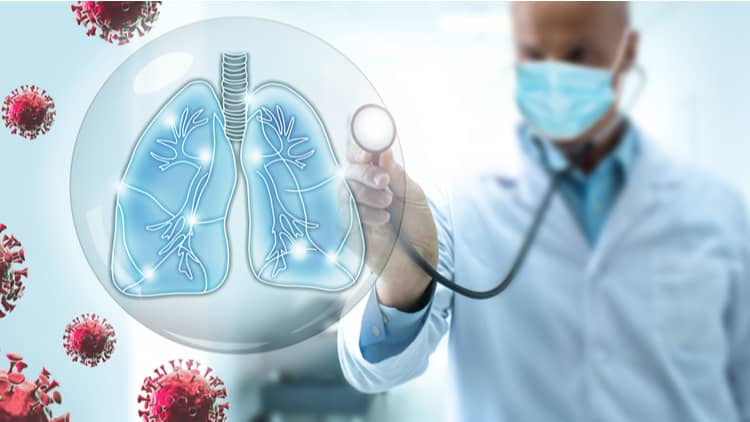
In the past few months, millions of people have been affected by a coronavirus, all over the globe. So far saving themselves from this virus was the only concern of the majority of people all across the world. But the situation and its dynamics have changed drastically over the past eight months. Doctors and other health experts are now realising that this virus can cause havoc even after the patient has ‘recovered’.
It has become extremely important to understand how this virus transmits and what effect it has on the body. Along with many factors which have turned it into a pandemic.
COVID-19 is a member of the coronavirus family. The other members of this family with whom we are familiar are SARS (Severe Acute Respiratory Syndrome) and MERS (Middle East Respiratory Symptoms) virus. The strains of coronavirus cause common cold and flu as well.
Primarily, COVID-19 infects the respiratory tract in humans. The effect can be as simple as mild flu or no symptoms at all. But it can lead to severe symptoms which can turn out to be fatal.
The Complications
COVID-19 and ARDS are directly related. The severity of covid-19 infection normally leads to ARDS and pneumonia. These problems can prove to be fatal for the patient. Acute Respiratory Distress Syndrome (ARDS) can lead to breathing difficulties, dry cough and an increase in heart rate. Covid-19 shows mild symptoms in a person who is otherwise healthy and doesn’t have any underlying medical conditions. These signs and symptoms can be taken care of with medication till the patient recovers.
But in cases where the person has low immunity due to underlying health issues, the infection from coronavirus can progress to ARDS, which ultimately causes pneumonia.
Besides the lungs, this virus impacts the functioning of the heart as well as the brain of the infected person. This can further increase the risk of long term medical issues and can prove to be life-threatening.
The most common symptoms of this virus are-
- Fatigue
- Breathlessness or shortness of breath
- Cough
- Headache
- Weakness
- Joint and muscle pain
- Depression or anxiety
- Increased heartbeat rate
- Sleep-related issues
- Loss of taste and smell
Organs that are Affected by COVID-19
- Lungs
When infected, the air sacs inside the lungs of the patients can get damaged, which can cause breathing-related issues. - Heart
Certain patients who experienced only mild symptoms have also shown damage to the heart muscle, months after recovering. This may pose a threat to the heart and can cause heart-related complications. - Brain
The virus can cause seizures and strokes can even cause temporary paralysis in the infected person. Development of Parkinson’s and Alzheimer’s has also been reported in some cases. - Blood
Covid can make blood cells gather in dense groups. When such clots are formed in the blood, it can cause strokes, heart attack or other damage to the heart. Big and small blood clots can affect organs like the legs, kidney, liver and lungs. - Mood Disorders
Having survived this infection, a person is likely to develop depression, anxiety and post-traumatic stress disorder.
Does Every Patient Face the Side Effects?
Though the effects of Covid seem to be rather grim, it is not all bad news. The silver lining is that many people who were infected with this new coronavirus have recovered completely within a short period of time. As discussed earlier, some people, including the ones who exhibited mild symptoms of the infection, experience symptoms even after they have experienced initial recovery. Nevertheless, it should be kept in mind that asymptomatic patients are not immune to the long term effects of this disease.
It becomes important here to understand the factors which make this virus fatal. These factors include underlying medical conditions like diabetes, respiratory complications, cardiac problems and hypertension. Individuals who are advised of immune-suppressing medication need to be more vigilant about their health parameters.
Though mostly it is the senior citizens or people with comorbidities who may suffer from long term effects of this virus, few children and young adults with mild versions of this virus have reported a few of the above-mentioned symptoms
Different Categories of COVID-19 Infection
To understand the other complications that may arise from Covid, it is also important to understand how it affects different people, who have been affected:
- Asymptomatic Cases
The individuals who have been infected but may not exhibit any symptoms. They act as a carrier of this disease without even realising it because they themselves may be oblivious of their infection. They are at great risk of spreading this virus. - Mild Cases
Individuals who suffer from mild symptoms like fever, headache, cough or even conjunctivitis, as these are infections of the upper respiratory tract.
- Moderate Cases
Here the symptoms suffered by the individual are more pronounced. Such individuals might need medical assistance and hospitalisation. Timely medical help can prevent the risk of fatality. - Severe Cases
People in this category may have severe conditions. Their infection may lead to ARDS and pneumonia. If a person reaches this stage, Covid-19 becomes life-threatening and fatal.
Covid-19 and the Side Effects of the Vaccine
Just like for covid-19, all vaccines are introduced only after their safety is proven. But side effects of vaccines cannot be ruled out altogether. In most cases, side effects are found to vary from person to person. The most common complaints of Covid vaccines so far have been mild fever and pain at the site of injection. Let us take a look at the side effects in detail.
Covishield may have some mild symptoms like:
- Fatigue
- Mild fever
- Chills
- Injection site pain or tenderness,
- Nausea
- Malaise or uneasiness
- Myalgia or muscle pain
- In very few cases, demyelinating disorders have been seen where the myelin of the nerve tissue is destroyed.
Covaxin also has its own set of mild symptoms such as:
- Pain in the Injection site
- Fatigue
- Fever
- Abdominal pain
- Body ache
- Giddiness
- Vomiting and nausea
- Trembling
- Cough and cold
- Excessive sweating
- Swelling at the injection site
No other vaccine-related severe complication has been reported so far
Conclusion
While the studies and experiments are ongoing for finding a life-saving vaccine for coronavirus, which is tested and certified by medical associations, the most judicious way to be safe from this virus is to stay safe, avoid public places and get vaccinated. Simple precautions like wearing masks, maintaining hygiene and maintaining a social distance would surely go a long way in curbing the spread of this COVID-19 virus.
References
- https://www.thehindu.com/sci-tech/health/the-hindu-explains-what-are-the-long-term-effects-of-covid-19/article32651206.ece
- https://www.narayanahealth.org/blog/how-covid-19-affect-your-lungs/
- https://www.mayoclinic.org/diseases-conditions/coronavirus/in-depth/coronavirus-long-term-effects/art-20490351
- https://www.mohfw.gov.in/covid_vaccination/vaccination/common-side-effects-aefi.html
































